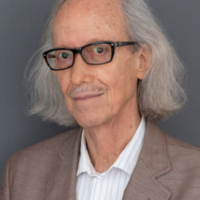Arturo Escobar
Title
Rights
Birthplace
Primary Sources
Relationality: An emergent politics of life beyond the human. Bloomsbury Visual Arts. https://www.bloomsbury.com/au/relationality-9781350225992/
Escobar, A. (2023). Welcome to possibility studies. Possibility Studies & Society, 1(1-2), 56-59. https://doi.org/10.1177/27538699231171450
Escobar, A. (2020). Pluriversal politics: The real and the possible. Duke University Press. https://www.jstor.org/stable/j.ctv11315v0
Escobar, A. (2001). Culture sits in places: Refections on globalism and subaltern strategies of localization. Political Geography, 20, 139–174. https://doi.org/10.1016/S0962-6298(00)00064-0
Alvarez, S. E. (2019, 1998). Cultures of politics/politics of cultures: Revisioning Latin American social movements. Routledge. https://doi.org/10.4324/9780429501135
Secondary Sources
Batterbury, S.P.J & Fernando, J. (2024). Arturo Escobar. Key thinkers on space and place. London, pp 113-120, London:Sage.
Extra Resources
Arturo Escobar and Marisol Cortez, Deceleration, March 30, 2023, Youtube https://www.youtube.com/watch?v=AERe A0BUXEg&t =1842s
Arturo Escobar, Why are communities key to transforming the world. EXALT Iniative, Podcast, University of Helsinki, Hosts: Christopher Chagnon and Sophia Hagolani-Albov, June 25, 2021
https://anchor.fm/exalt-initiative/episodes/Arturo-Escobar---Why-are-communities-key-to-transforming-theworld-e13bp5a; https://radiopublic.com/exalt-podcast-6vY0Rl
09.28.21 Arturo Escobar ft. WAI Think Tank: Pluriversal Designing and the Re-Earthing of Cities. October 1, 2021. The Cooper Union Arch Archive. Vimeo. Accessed June 10, 2022. https://vimeo.com/620328527

